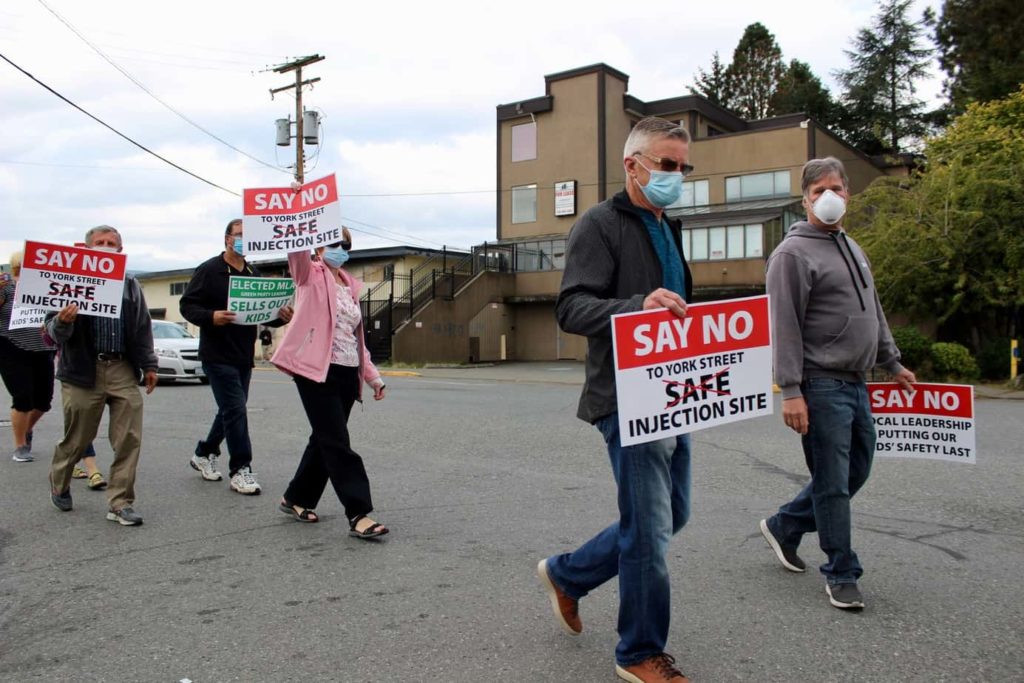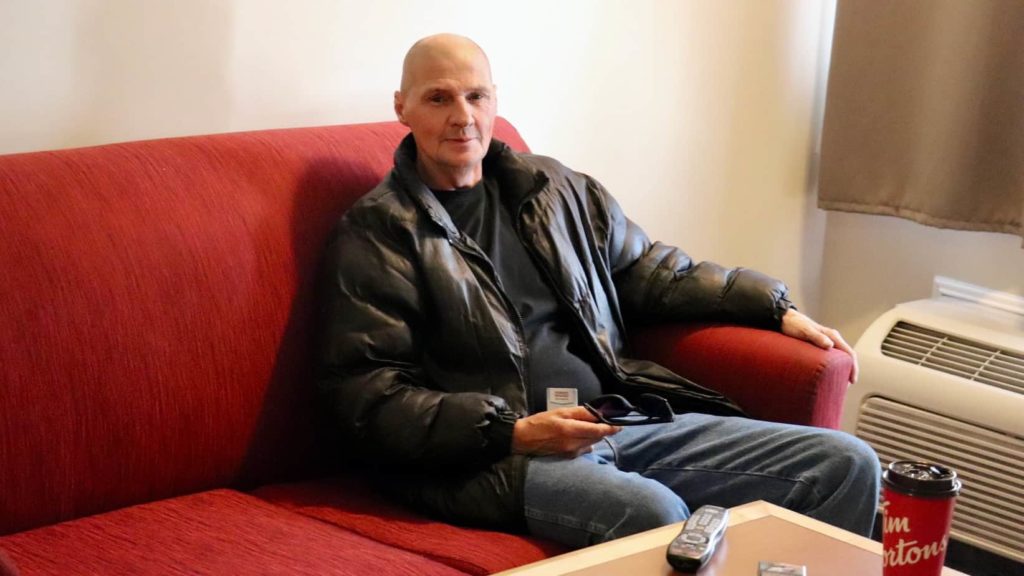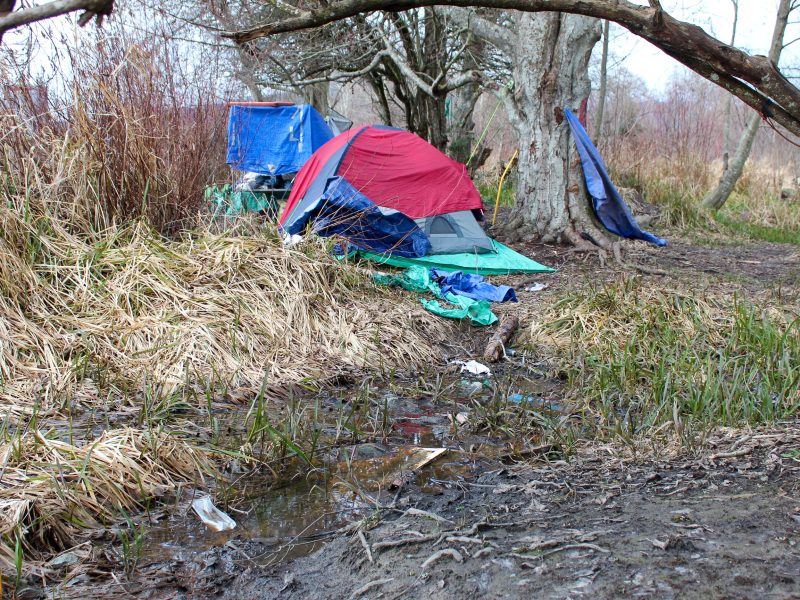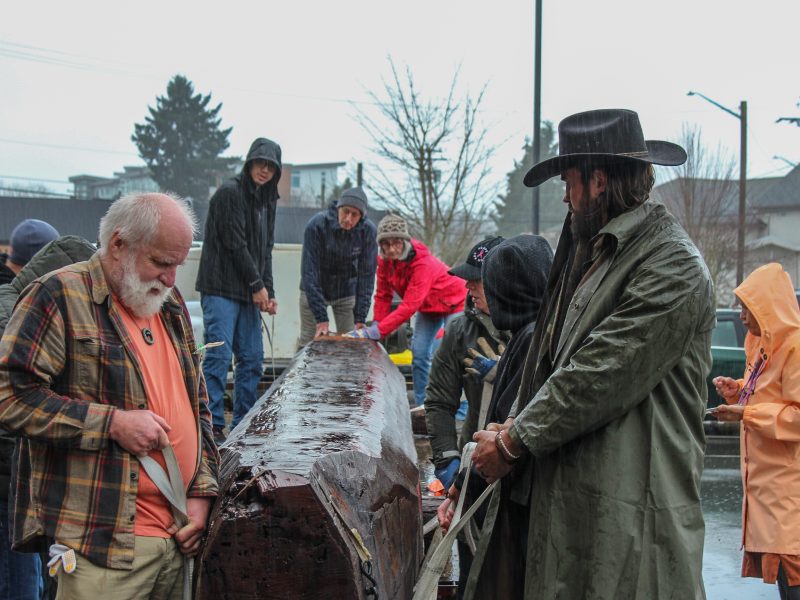
Housing affordability, poverty, homelessness, mental health and addiction — by any measure these are key issues in the Cowichan Valley region. A constituency assistant in Cowichan Valley MLA Sonia Furstenau’s office says more than half the people who come for help come for those sorts of concerns, with an inability to find housing the most common problem.
The Discourse has surveyed this community multiple times, and homelessness consistently ranks as a top concern. And the most visible tip of this housing crisis is on the streets of Duncan’s urban core, where visible drug use, crime and public safety have come to the forefront of public concern.
“The majority of the calls that I’ve gotten as mayor since I’ve started is about this issue,” City of Duncan Mayor Michelle Staples said in an interview with The Discourse last month. The Cowichan Leadership Group — including representatives from municipal governments, Cowichan Tribes, the Cowichan Valley Regional District, the provincial government, the federal government, the Cowichan Valley School District board and RCMP — have collaborated to strongly lobby the provincial government for support and action. The Municipality of North Cowichan and the City of Duncan are implementing a Safer Community Plan to add security and other supports for businesses and neighbourhoods along the highway corridor.
Most recently, Island Health’s plan to relocate and expand services at its Overdose Prevention Site has met some community resistance. Critics say the location of the wellness centre is too close to schools and may exacerbate issues in an already-troubled neighbourhood.
In light of this, The Discourse reached out to MLA candidates in the Cowichan Valley riding, which includes the Duncan core, to ask about their plans to tackle these issues. BC Liberal Party candidate Tanya Kaul declined the interview request. She has addressed the issue in a Facebook post, and at a public forum pledged that a Liberal government would pause the wellness centre project for public consultations. (The BC College of Family Physicians rated the Liberal Party’s election promises regarding the overdose crisis a six out of 10, while ranking the NDP and Greens each 10 out of 10.)
Both BC Green Party candidate Sonia Furstenau and BC NDP candidate Rob Douglas answered The Discourse’s questions on this issue at length, including questions we heard from community members. Here are the responses from Sonia Furstenau, lightly edited for length and clarity. Read Rob Douglas’s responses to a similar set of questions here.
Jacqueline Ronson: When I think about mental health, addictions, housing — these are all provincial responsibilities. And these are all problems that seem to be just growing and getting more and more out of control. What has happened in our community and what has happened in our province?
Sonia Furstenau: I look back to 20 years ago — the beginning of the [BC Liberal Party Gordon] Campbell government in 2001. And the thing that happened is massive, across the board tax cuts — 25 per cent tax cut across the board, coupled with a massive cut in services.
And those services were … designed to help women who had left domestic violence, get training so that they could get good employment and be able to support themselves and their children; services like mental health supports for people; cuts to counselling and education; cuts to housing support.
And, of course, we did not see the impacts of that until it started to grow. It’s like a slow-moving disaster.
Exacerbated by that was the out-of-control housing market. Let’s not forget, there’s still an inquiry into money laundering going on in B.C. What is the connection between the drug business, the import of fentanyl, money laundering in the casinos and the housing market? And the way that the housing market started to shift away from being something that is for people to live in, to a commodity that was being bought and sold as a way to generate wealth.
I’m a historian. I understand how agitated and upset people are by what’s happening in the streets in Duncan, but also what’s happening in communities all over this province. We are not alone in this. If we want to understand how we got here, it’s important to look at the history and the context.
Cowichan was underserved as a riding for that entire period as well. And the gamesman-like way that politics has been done in this province — It was an open kind of secret that ridings that consistently voted NDP were going to be underserved by the former government.
And so, here we were in 2017 [when the BC NDP came to power thanks to an alliance with the Green Party.] And not only had there been very little investment into services in this riding, but there had been this huge deficit in infrastructure investment — the high school, the hospital, no movement on getting the weir, the hospice.
I remember as a CVRD director, hearing from … Gretchen [Hartley, executive director of the Cowichan Valley Hospice Society] about people dying in the hallways in the hospital. And that we just so urgently needed to fix that.
And so we’ve had three and a half years of this minority government and there have been investments made. We are getting more housing built. We did see the move with [temporary housing at] the Ramada and with the secure tenting sites, because of COVID.
The depth of this problem is such that it feels in so many ways insurmountable. But it’s not.

I just looked at this CBC article that came up — a B.C. research project that looked at what happens when you give homeless people $7,500. And what they found was that the people that got the money took care of themselves, got housing, got stabilized, started getting training and education, and were able to move forward with their lives.
It’s not rocket science. For a lot of the problems that we see, we have to start with that fundamental piece of: people need a place to live.
We’re seeing, of course, activity that is very distressing. And people are anxious and worried about their safety and their children’s safety. Absolutely.
But when I talked to one of the residents who’s now living at the Ramada, he described to me the feeling of every day, basically spending the whole day having to think about, “Where am I going to sleep tonight? Where can I be safe? Where can I sleep, [where] I won’t be injured or harmed or robbed?” And that anxiety that came from that feeling of not knowing where he was going to sleep at night was one of the biggest drivers for him seeking out drugs – to quell that.
Any of us, I think, could imagine that terrible anxiety of not knowing where you’re going to sleep at night. And he’s now got a place to sleep. He’s living at the Ramada and has turned around very quickly to be in service to his community. He’s cooking food, making sure that there’s good meals for the folks that he’s living with, … and also wanting to help as a peer navigator. Because it’s so hard for people to know how to access the resources to be able to get the help they need to get stabilized.
So let’s look at the evidence. And research tells us it is more expensive to leave people unhoused than it is to provide housing. And we’ve seen the positive impacts for many of the residents in the tent sites and the Ramada.
I’m thinking of it in my mind like a conveyor belt. We’ve had this conveyor belt since the early 2000s, that’s kind of taking people to the edge, and they fall off the edge. But that conveyor belt has been going in the wrong direction. We need to turn the conveyor belt into the other direction, where people get that first access to — maybe it is a secure tenting site. But that means that you have that safety. You know where you’re sleeping at night. You’re getting access to the public health nurses, the security that you need, access to just those basic levels of support.
And then the conveyor belt moves you along into somewhere like the Ramada, or another hotel site, and then you’re moving into the supportive housing, which is being built. And then ultimately the conveyor belt lets you back into independent living and a healthy existence. I think the mistake we make is thinking, well, if somebody has ended up on the street, that’s the final destination. No, let’s let’s make a healthy, independent life the final destination.

JR: An Island Health report from a couple years ago on overdose prevention sites on the Island — It says that communication, education, stigma, these are all issues that need to be dealt with in order to have these sites be successful. And yet, we’re still now having municipalities and neighbours and businesses say, “Island Health isn’t talking to us. They’re not listening to us.” The level of this conflict just shows that island Health has not really addressed that problem adequately. What would you do representing this community to improve that?
SF: Even from my earliest days, in Shawnigan, as the area director … when we had an issue, one group would point at another group, and they pointed at somebody else, and they pointed to somebody else. Okay, let’s all get around the table and have this conversation.
I think that that’s what’s needed. I think it was needed earlier, as I’ve indicated. Because of the public health emergency, there are these stipulations, as well as powers that Island Health has. But that doesn’t mean that you don’t communicate, that you don’t work with the community, that you don’t get to the table.
Because you can move forward with solutions so much more easily and so much more effectively when everybody’s around the table, participating in that decision making, being able to contribute, and also being able to hear from all sides.
So that’s got to be the next step that happens here: Okay, everybody to the table. And I know that that was about to get underway, in some format, before this election was called. And so now we’re stalled.
JR: The election has interrupted Island Health’s ability to have a conversation with the community?
SF: Yeah. It has interrupted what was underway about getting those community conversations happening. It’s another example of what we should be doing right now. And instead, we’re engaged in this election. It’s really jammed up the processes that should be underway.
JR: One fear that I hear over and over again is that if you put services in this community, it’s going to attract people and behaviour that may not be assets to the community. I got a question from somebody who said, “Are similar investments for facilities being made in other Island communities to encourage Island Health and [Canadian Mental Health Association] clients to stay in their local communities?”
It’s such an important, such an excellent question. And yeah, there are. But this is one of the things that I’ve been talking about a lot in this election campaign: Services should be available in every community. And not just services for people struggling with drug addiction — proactive mental health services, health services, excellent access to education.
It’s really jarring to me when I hear the other parties and their leaders going into a riding and saying, if you elect us, your riding will get this special treatment. That’s one of the problems we have right now is that there have been winners and losers, when the government’s job is to ensure that services are available equally to every citizen in their communities.
We’ve seen what happens when there’s a concentration of services in one place and not in others, and also when there’s a deficit. What needs to happen is that you don’t become a magnet for people coming here because this is where they can access those services. Because they don’t need to; they can be in their own communities and they can stay in their own regions.
The reality is, every community needs those services so that people can start to get well. The goal here is not that there’s more and more people needing to access these services. The goal is that there are fewer and fewer. And eventually, we are reaching a place where everybody can be healthy in their community.
JR: Do you think the supportive housing, the wellness centre, these services are bringing us closer to that goal?
SF: They are essential parts of that goal. We’ve been calling, in this region, for years and years to have treatment available for people in [the] community.
Because one of the problems we have is, okay, you finally get into a treatment centre or a treatment bed. But it’s somewhere else: It’s in Nanaimo, it’s in Victoria. And at the end of it, you get dropped back off in your own community, and you don’t have the community supports that you need to be able to stay well.
If we want to have people be able to get well, they need to have connection. And I see it when I’ve been talking with people that are living in the Ramada site. There’s connection happening there. There’s a sense of community. It’s not a panacea. It doesn’t solve everything overnight. But it certainly is better conditions than figuring out where you’re going to sleep at night.

JR: I got another question from a community member. The question was, “How can we get people to seek out quality info?” And I think that speaks to a bigger question of, how do we build evidence-based policy? And how do we get the population to support that policy?
SF: Well, partly it’s our job, as elected people. We need to seek out evidence-based policies and solutions. And then we need to be able to explain clearly: Why are we making the decisions we’re making? Where is the evidence that shows that?
A lot of research that says Housing First models are a far more cost-effective way of dealing with these problems than just letting them carry on as they are. There’s a lot of evidence and research that says decriminalization, de-stigmatization, treating addictions as a health issue, not as a criminal issue, is a way of successfully addressing these issues.
And you can look to jurisdictions like Portugal. And you can look to reports like Dr. Bonnie Henry’s report from 2018 that says we need to move towards decriminalization. The RCMP are calling for this. As long as we’re spending money treating this health issue as a criminal issue, we’re then not having the resources to treat it as a health issue.
And at the same time, the criminal aspects of this have to be addressed. One of the things we hear from the RCMP is that the court systems are so backlogged that they can catch somebody in criminal activity, but that person is highly unlikely to be facing any consequences in our legal system. So that has to also be fixed. We cannot have a situation where people have learned that they can engage in criminal activity and there’s no consequences. And that’s not about drug use — that is about theft and vandalism and selling toxic poisonous drugs to people that result in their deaths.
A person suffering from addiction is not a criminal. They’re suffering from a health problem, and it needs to be treated as such.
We have to approach it from an evidence point of view, but also just from a human empathy, compassionate, dignity-seeking approach. And the resources need to be made available to communities, so that they can approach it in these ways. Right now, we are just in a kind of crisis and chaotic place, for the people that are continuing to have to camp on the sidewalks, on the streets, in the marshes, in the parks.
And we can see the effects it has when there’s stabilization that happens. And we want to be striving for that. We don’t want concentration of people in one place. We want people to have smaller groups to live in with those supports available so that people can start getting well.
JR: You mentioned the toxic drug supply. When I think about why people are dying right now, at such a high rate — the direct cause of that is the poisoned drug supply. What would you do as a party leader, as MLA, to help with that?
This again goes back to Dr. Henry’s report. She identifies that decriminalization and then having a safe medical supply for people so that they’re able to get the treatment — literally the treatment — they need to be able to stabilize and then move towards being able to get to the recovery and wellness part of this journey for them.
The physical dependency on opioids is something that I think none of us ever want to experience. From what I’ve read and heard, it is truly agonizing. And so, seeing it as a very desperate health issue, making sure that people have access to a safe supply, and then ensuring that those supports and that treatment is in place for them to move towards the recovery and wellness.
These are the steps. This is what the evidence, the research, the experts tell us. This is what’s been shown to work in other jurisdictions. We have to apply that just as we … continue to use science to guide us through the pandemic. Because it’s a health crisis, and we’re taking health advice from health experts. We have to do the same thing with the opioid crisis.
JR: You’ve just announced a suite of mental health promises. One thing I’ve heard is that part of the root of this problem is not catching people before they fall. Tell me a little bit more about your plan for that.
SF: So, our plan is to roll mental health care into MSP so that if you’re needing to get mental health care, the barrier of it being something that you can’t afford, or can’t access, isn’t there anymore.
We worked with the [BC Psychological Association] through most of 2020, even before COVID hit. They have been piloting a project where, through COVID, people are getting access to psychologists and getting that mental health care. And it’s been shown to be very beneficial.
The proactive supports for people are far less costly than waiting until somebody is in a mental health crisis and arriving at an emergency room in a hospital. Having that access to mental health care can avert many of these crisis situations that we see, including for people that are suffering from addictions.
For those of us who have, over the courses of our lives, sought out counselling and mental health supports — often because we can afford it — we can recognize and I can recognize that even just a little bit of professional mental health care and counselling can really be the thing that can help us get through some tough and challenging times.
When I lost my father and my stepmother to cancer in the space of eight months, I very much relied on the BC Cancer Agency and the grief counselling that they provided. And I still look at those sessions — even just talking to you, I get a little bit emotional — as being so pivotal to helping me get on the right track with, one, being able to be in grief at a time where I had lost so much, but also having tools to navigate through that grief. And to get back to a place where I could be continuing to care for my son as a single parent, continuing with my studies and moving forward with my life.
That little bit of support that I had — and I think it was three or four sessions — was pivotal to my wellbeing and recovery from some of the deepest points of loss and grief that I’ve experienced in my life.
JR: If your party doesn’t [form the government,] how will you make sure that progress is made on these issues?
SF: It was before I got elected as MLA that we were successful as a community here in Shawnigan in achieving something that no community had ever achieved, which was getting a permit revoked by the Ministry of Environment.
I’ve been working effectively, both inside and outside of [elected] office, for many years in service to my community. And that is the driving value for me, being in that place of service. And I am relentless in the work that I do. I’m deeply committed to ensuring that things continue to move forward.
The progress we’ve made here in Cowichan in the last three and a half years has been significant. And it’s been because of the hard work of so many people in this community, having really created the conditions for success.
What I did was, as I said, get everybody to the table. Get the ministers up here, the health minister, the education minister, the minister for mental health and addictions. Get them up here in front of the people in this community, who are so dedicated and so hard working.
And that’s what I can do, whether we are government, whether we are in a minority government or whether I’m in an opposition position. That doesn’t change how I work and how I see effective outcomes being achieved. Which is, knowing where you’re trying to get to and then relentlessly working towards those outcomes. That’s what I bring, and I’ve got many years and many examples of showing how effective that could be. [end]



